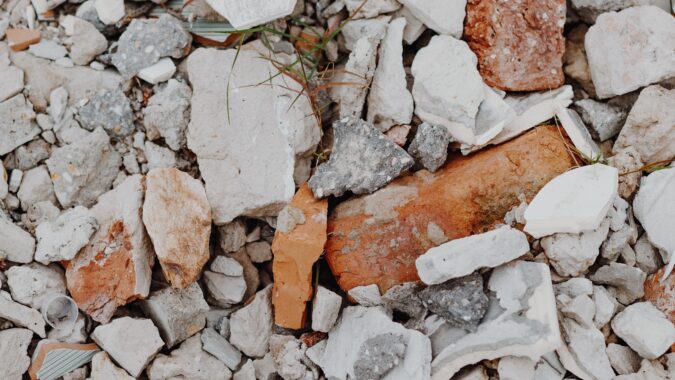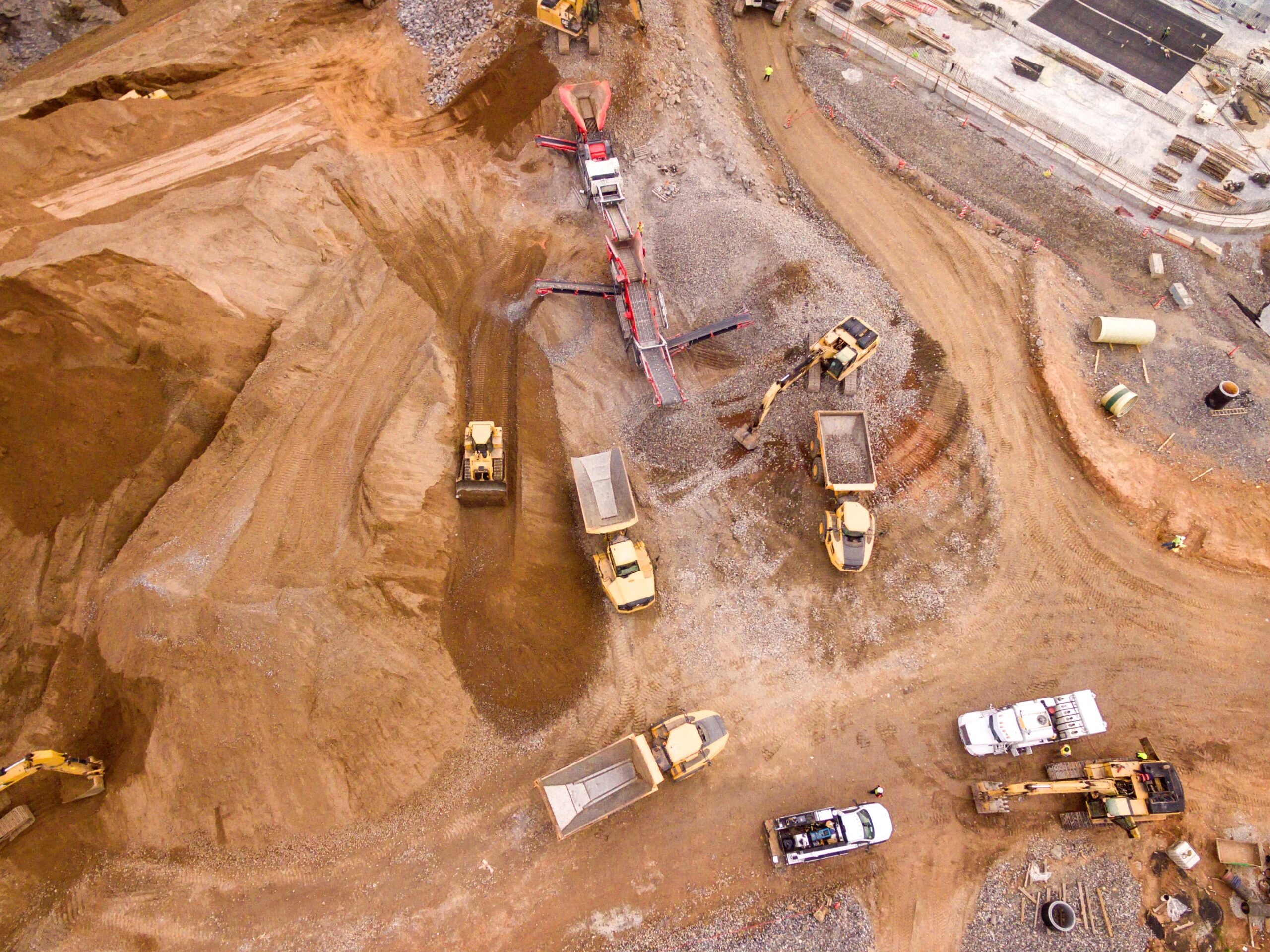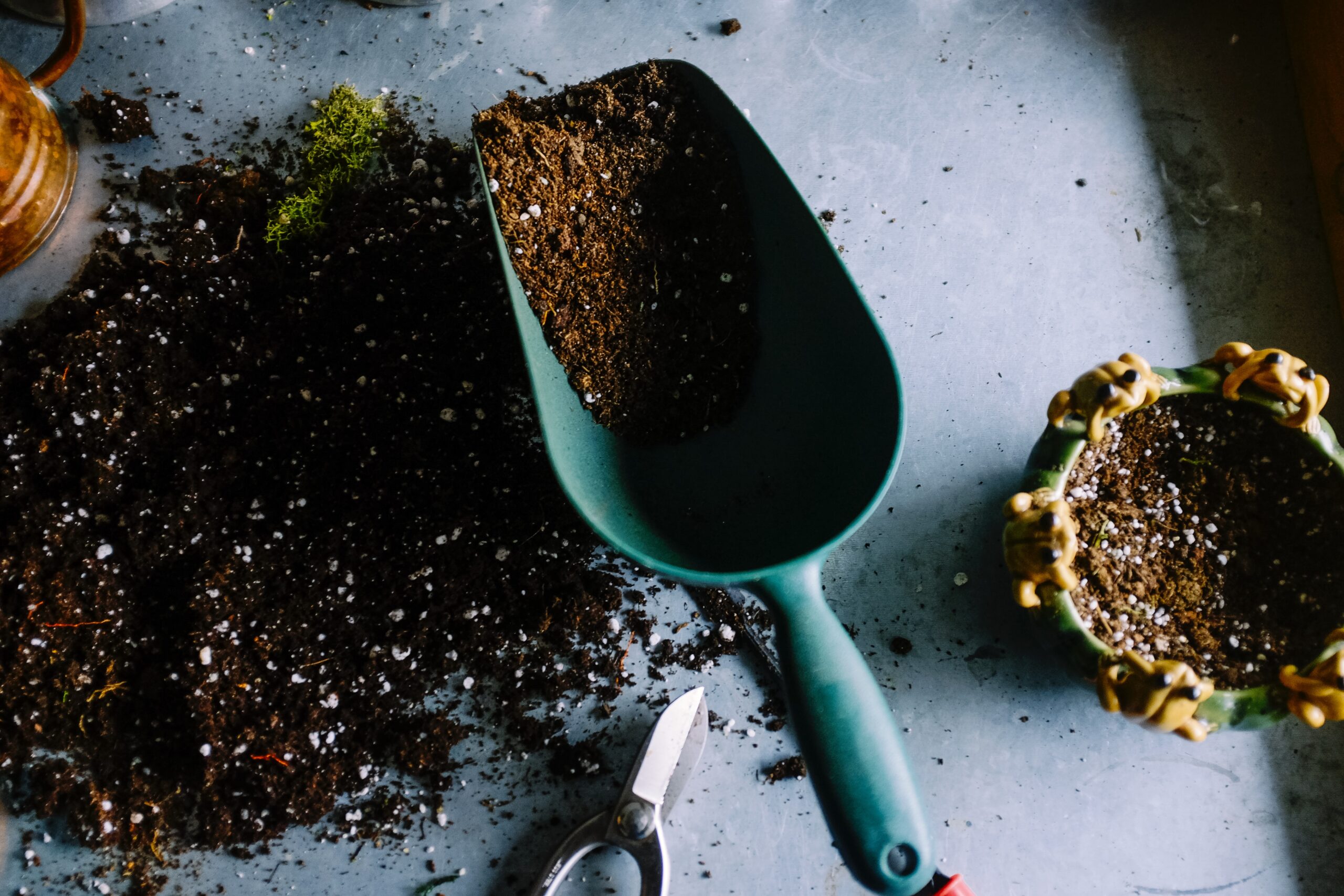
Inert Waste Disposal
Construction sites, demolition work, and building and renovation projects commonly produce inert waste. This includes concrete, rubble, soil, and other types of waste that aren’t chemically or biologically reactive. They may be harmless to human health and the environment, but inert waste is often produced in large quantities and needs special management and disposal.
At Business Waste we can help with your inert waste management. This includes providing free bins and containers to store waste safely on your site (you only pay for collection). Licensed waste carriers will remove it at an agreed time and ensure responsible disposal in an environmentally friendly way.
Get a free quote for inert waste collection and disposal today – contact us online or call 0800 211 8390. Or keep reading to learn about what inert waste is, how it’s disposed of responsibly, and everything else you need to know about managing inert waste.

Get a FREE quote
Get a fast FREE quote for your inert waste collection
- Free quote within 1 hour
- Any type of inert waste
- FREE bins and delivery
- We cover all of the UK
What is inert waste?
Inert waste is a type of rubbish that is not chemically or biologically reactive – meaning it does not decompose or takes a very long time to do so. It’s a type of waste material that won’t dissolve, burn, biodegrade, or negatively impact any other waste or matter it’s in contact with.
Due to these properties, inert waste doesn’t pose a threat to the environment, wildlife, or humans. Inert waste essentially won’t cause a reaction or create pollution when it’s disposed of. The most common examples of inert waste are rubble and related materials often produced on building and construction sites.
Inert waste examples include:
- Concrete
- Bricks
- Sand
- Soil
- Rubble
- Clay
- Chalk
- Ceramics
- Tiles
- Stone
How to dispose
of inert waste
To dispose of inert waste, you should follow similar steps for construction waste management and disposal. First, store your inert waste safely in appropriate bins, bags, or containers on your site. This could include skip bags, skips, or roll on roll off skips – just ensure you don’t exceed any weight limits.
Then arrange commercial collection of your inert waste by a professional waste management company such as Business Waste. Book removals at a time, date, and schedule to suit your needs. Ensure all access requirements are met and licensed waste carriers will collect your inert waste at the agreed time and date.
They’ll transport it to an appropriate nearby facility for responsible disposal and recycling. You’ll receive a free duty of care certificate confirming the safe and legal disposal of your inert waste. Contact us online or call 0800 211 8390 today for a free quote for inert waste disposal anywhere in the UK.

Inert waste disposal
and recycling methods
The good news is that inert waste isn’t harmful to human health, the environment, or wildlife. It won’t release toxic emissions or pollute the ground, air, or waterways. The bad news is that inert waste takes an incredibly long time to break down and decompose (if it does at all). It also uses up lots of space when sent to landfill.
For these reasons, responsible disposal of inert waste and keeping it away from landfill is vital. Inert waste recycling is possible and involves turning it into construction aggregate. This is a coarse-to-medium-grained particulate material that’s added to or used to form fresh asphalt or concrete.
The aggregate created from recycling inert waste can also be added to roads and paths and used in domestic or commercial garden projects. Inert waste recycling avoids using up valuable landfill space. It also saves on the energy, resources, and emissions required to form construction materials from scratch.
Other inert waste disposal and recycling methods can vary depending on the specific type of material. For example, bricks can also be recycled and turned into new ones. They’re crushed and blended and then either turned into new bricks, or aggregate or used in landscaping projects.
Who needs to
recycle inert waste?
Effective inert waste management is essential for all businesses and organisations that produce any type and amount of inert waste. Construction sites, excavation work, demolition, and other building projects are the main places that generate inert waste. Other companies may need to recycle inert waste at times too.
Inert waste management and recycling is especially important for anyone who produces:
- Agricultural waste – such as waste soil from farms and fields, stone from old drystone walls.
- Construction waste – leftover or broken bricks, waste concrete, and rubble from demolition work.
- Factory waste – waste from the production of new concrete, bricks, and tiles in factories.
- Garden waste – domestic and commercial garden and landscaping projects may create waste soil, clay, chalk, and sand.

How to dispose of
inert waste at home
Households can also create inert waste that needs collecting and disposing of properly. If you use a professional construction firm for any building work then they should be responsible for any inert waste management. They should arrange the removal and disposal of it and may include any costs in the price they charge.
However, if you undertake any domestic gardening or construction projects – such as building a patio or knocking down a garden wall – you’ll have to arrange its removal and disposal. You cannot place inert waste in your household waste, recycling, or garden waste bins.
See if you can take it to your local household waste recycling centre (HWRC). Some HWRCs have containers for rubble and other inert waste, while others don’t accept it. Check in advance and if you can take inert waste to a HWRC then make sure it’ll fit in your car.
Some councils may offer a bulky waste collection service that accepts certain types of inert waste, so check with your local authority. There may be a charge for this service. Otherwise, use a professional waste management company such as Business Waste. We can offer some one-off collections of inert waste for households in the UK.
Arrange inert waste collection
Get a free no obligation quote for inert waste collection and disposal with Business Waste. Inert waste removals are available anywhere in the UK on a schedule to suit you with a choice of one-off, daily, weekly, and fortnightly collections. Licensed waste carriers will remove your waste at an agreed time.
We can provide free bins, bags, and containers to store your inert waste safely onsite – you just cover the collection costs. The cost of inert waste management will be based on the type and amount of waste you need to dispose of, how often, and where your business is in the UK.
You’ll receive a free duty of care certificate for added peace of mind that your inert waste is disposed of safely and legally, with all waste diverted away from landfill. Contact us online or call 0800 211 8390 – one of our experts can provide inert waste guidance and answer any of your questions.
Inert waste FAQs
-
Is soil inert waste?
Soil is a type of inert waste as it’s not chemically or biologically reactive. Most garden soil is inert waste as it’s ‘clean’ and contains no hazardous elements. Some types of soil may not classify as inert waste if they’re contaminated with harmful substances, such as pesticides.
-
Is plastic inert waste?
Most plastic is a type of inert material as it takes a long time to decompose and does not chemically react. However, if many plastics end up in landfill they can leach the chemicals they contain that may contaminate nearby ground, water, and air, adding to pollution. While plastic is technically a type of inert waste, recycling plastic waste is a more sustainable solution.
-
Is turf inert waste?
Turf is not an inert waste – it’s a type of garden or green waste. Waste turf should be disposed of with other green waste like grass cuttings and hedge trimmings. This is normally sent for composting, which is a greener disposal method than turning it into aggregate.
-
Is inert waste hazardous?
Inert waste is not hazardous. Inert waste doesn’t pose a threat to human health, wildlife, or the environment however it’s disposed of, unlike the various types of hazardous waste. When inert waste is disposed of it does not react or affect the quality of any ground, water, or air it’s in contact with.
-
Is inert waste biodegradable?
Inert waste is not biodegradable. One of the main defining characteristics of inert waste is that it does not decompose or takes a very long time to break down. This is why inert waste should not be landfilled, as it will stay there forever. It will not dissolve or burn either.
Get a fast and free quote
Get a fast FREE quote for your inert waste disposal
- Free quote within 1 hour
- Any type of inert waste
- FREE bins and delivery
- We cover all of the UK